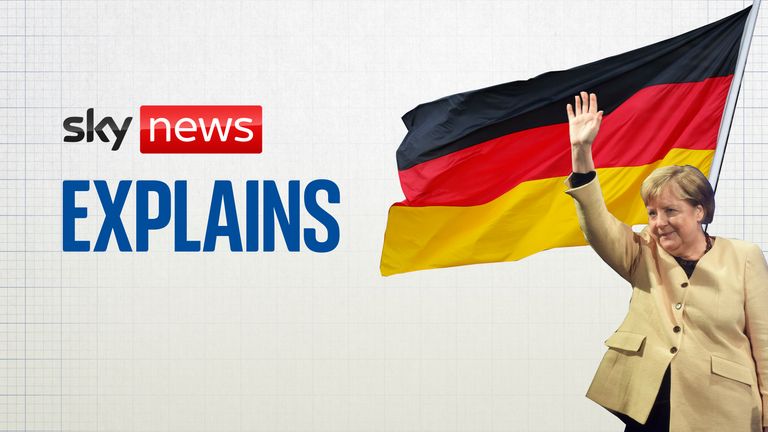Germany goes to polls in election to decide Angela Merkels successor
Polls have opened in the German election that will decide who succeeds Chancellor Angela Merkel after 16 years in charge of Europe's biggest economy.
Polls point to a very close race between Mrs Merkel's centre-right Union bloc, with state governor Armin Laschet running for chancellor, and the centre-left Social Democrats, for whom outgoing finance minister and vice chancellor Olaf Scholz is seeking the top job.
The environmentalist Greens, with candidate Annalena Baerbock, are also making their first run for the chancellery.
About 60.4 million people in the nation of 83 million are eligible to elect the new Bundestag, or lower house of parliament, which will choose the next head of government.
No party is expected to come anywhere near an outright majority.
Advertisement
Such a result could mean that many governing coalitions are possible, and trigger weeks or months of haggling to form a new government.
Until it is in place, Mrs Merkel will remain in office on a caretaker basis.
More on Angela Merkel Related Topics:Mrs Merkel has won praise for steering Germany through several major crises.
The new chancellor will have to lead the recovery from the coronavirus pandemic, which Germany so far has weathered relatively well thanks to large rescue programmes that have fuelled fresh debt.
Germany's election: What's at stake?Mr Laschet has insisted there should be no tax increases as Germany pulls out of the COVID-19 crisis.
Mr Scholz and Ms Baerbock favour tax hikes for the richest Germans, and also back an increase in the minimum wage.
Germany's leading parties also have significant differences in their proposals for tackling climate change.
Mr Laschet's Union bloc is pinning its hopes on technological solutions and a market-driven approach, while the Greens want to ramp up carbon prices and end the use of coal earlier than planned.
Mr Scholz has emphasised the need to protect jobs as Germany transitions to greener energy.
Mr Scholz has said he would like a two-party coalition with the Greens, but that looks very optimistic.
Without a majority for that, his first choice would probably be an alliance with the Greens and the pro-business Free Democrats.
A coalition with those two parties is also Mr Laschet's likeliest route to power.
The Greens favour an alliance with the Social Democrats, while the Free Democrats prefer one with the Union.
The result may also allow a repeat of the outgoing "grand coalition" of the traditional big parties, the Union and Social Democrats, under either Mr Scholz or Mr Laschet.
The Bundestag has at least 598 seats, but Germany's complex voting system means that it can be considerably larger.
The outgoing parliament had a record 709 seats and the new one is widely expected to be even bigger.
The number of people voting by postal ballot is expected to be higher than the 28.6% who did so four years ago.
 Germany's election: What's at stake?
Germany's election: What's at stake?
0 Response to "Germany goes to polls in election to decide Angela Merkels successor"
Post a Comment